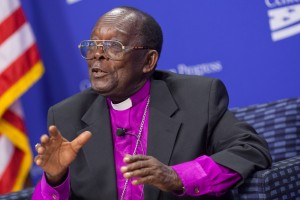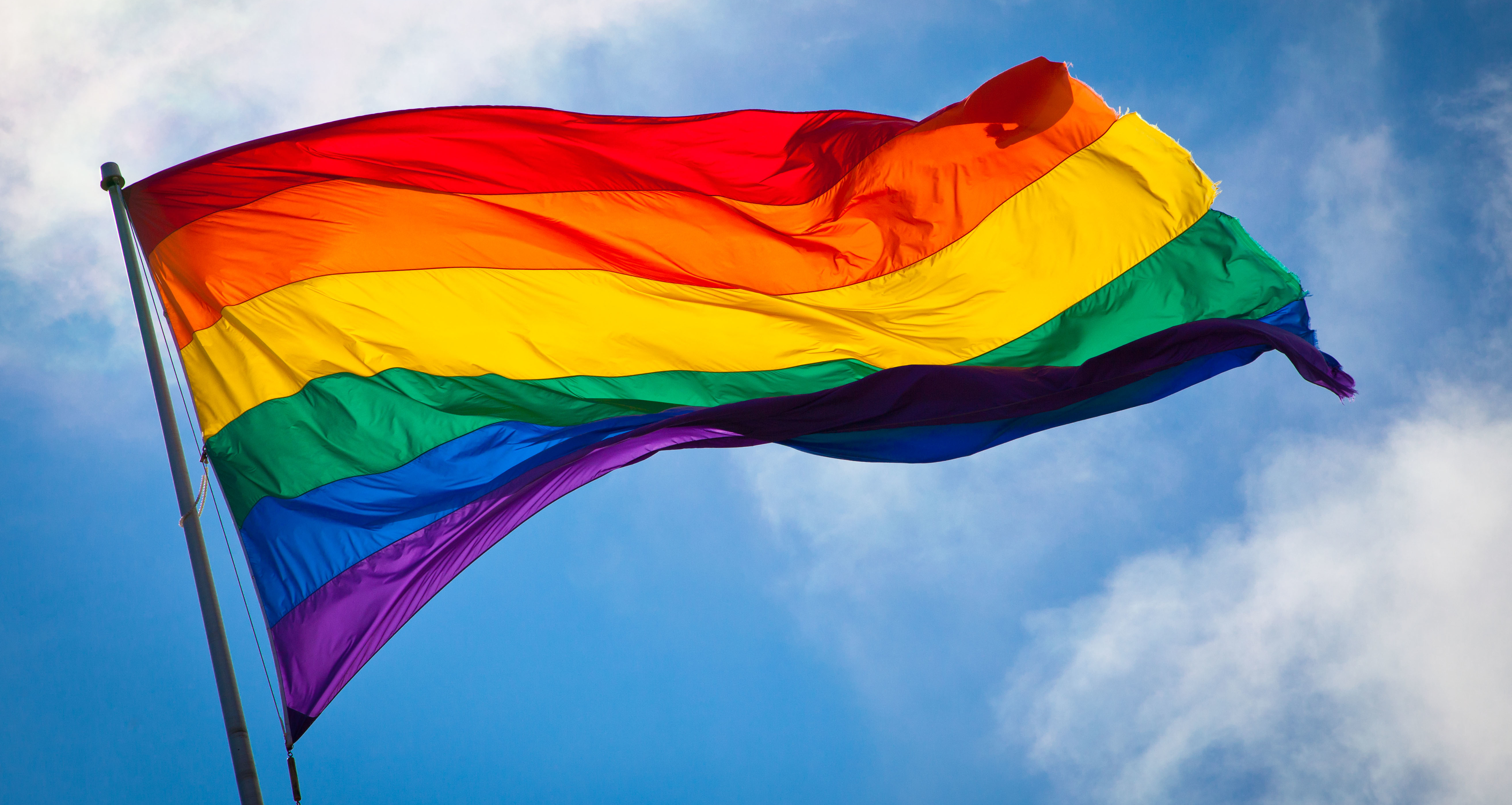In 2009, a bill was introduced in the Ugandan parliament that called for the arrest of LGTBQ Ugandans and specifically targeted “homosexual acts.” It imposed a minimum five-year imprisonment for the “promotion of homosexuality” with the possibility of death and — in frightening reminiscence of Nazi Germany — required Ugandans to report gay and lesbian citizens to the government. The bill was soon dubbed the “Kill the Gays Bill,” but mostly faded away after international outcry caused President Yoweri Museveni to distance himself from it. But the bill has since resurfaced, once unsuccessfully in 2011, and finally earlier this month. On February 22, 2014, Museveni finally signed the bill into law. While the death sentence was removed, it now threatens offenders with 14-year prison terms.
Homophobia is intensifying across Africa, and prosecution of gays and lesbians is on the rise. In Nigeria, President Goodluck Jonathan recently signed an anti-gay bill into law, leading to an increase in arrests of gay and lesbians. Uganda and Nigeria are now at odds with many Western nations, invoking criticism from the United States and Britain, which has, in the past, been paired with threats to end direct aid. In light of the signing of the Ugandan bill, Secretary of State John Kerry announced that the United States is reevaluating aid to Uganda. But despite the role of the U.S. government in sanctioning Uganda and Nigeria, far-right U.S. evangelical Christians have played an important role in planting the seeds for these virulent anti-gay movements. Americans who have fought for the rights of the gay community at home need to step up to those who have moved their anti-gay agenda to Africa, South America and Russia. By demanding the disclosure of funding for discriminatory legislation, appealing to international bodies to bring charges against those involved in its promotion and putting the spotlight on American politicians with a hand in these efforts, Americans can ensure that progress at home is not counteracted abroad.
In March 2009 — seven months before the “Kill the Gays” bill was introduced into the Ugandan parliament — three American evangelicals, Scott Lively, Caleb Lee Brundidge and Don Schmierer, went to Uganda to speak about the “dangers of homosexuality.” In Kampala, they delivered a three-day series of speeches attended by thousands of Ugandans, whom Lively described on his blog as “mostly professionals in various fields including education, counseling, government and medicine.” Lively made a number of inflammatory claims: he attributed Nazi inhumanity to an alleged culture of homosexuality within the party, warned about the sodomizing of youth by homosexuals and said that HIV/AIDS is God’s punishment for gays. Over a week later, Lively bragged about the conference on his blog, boasting that Stephen Langa, a prominent Ugandan anti-gay activist, had compared their campaign to “a nuclear bomb against the ‘gay’ agenda in Uganda.” One of Lively’s audiences was Parliament, where he spoke to legislators and the Minister of Ethics and Integrity. Seven months later on October 14, 2009, Ugandan legislator David Bahati introduced the “Uganda Anti-Homosexuality Bill.”
Homosexuality is legally banned in 38 of 54 African countries, and some of the harshest laws exist in countries with Sharia-inspired law such as Mauritania, Somalia, Sudan and Nigeria. While African countries are less accepting of homosexuality than their Western counterparts, the increasingly homophobic approach to homosexuality in Africa is not endemic to the region. The role of extreme right, anti-gay U.S. evangelicals such as Scott Lively in the success of recent legislation cannot be ignored. Indeed, African countries have been taken by a Christian storm, with the number of Africans identifying as Christian rising from 117 million in 1970 to 389 million in 2005. By some estimates, as many as 1,400 new Christian denominations arise in Africa each month. While some contest these claims, most authorities on the issue agree that 30 million of the 77 million Christians living in Africa are in Uganda, Nigeria and Kenya.

According to Roger Ross Williams, an award-winning documentary filmmaker whose recent film “God Loves Uganda” discusses the anti-gay issue, missionaries such as Scott Lively “are ecstatic that they’re achieving what they could never achieve, what they are losing, in America” — the battle against homosexuality. As the United States moves forward on LGBTQ rights — with decisive Supreme Court rulings, the repeal of the Defense of Marriage Act and the state-by-state movement towards marriage equality — the American religious-far-right has been forced to take its losing battle elsewhere.
The success of U.S. evangelicals in promoting fervent anti-gay feelings — 98 percent of Nigerians claim to oppose homosexuality — rests upon two characteristics of post-colonial African countries like Uganda. On the one hand, they see an easy target in countries that, for religious, historical and cultural reasons, have homophobic leanings. But as Williams explains, “People in Uganda, where I spent time, have tended to, in the past, just look the other way. It was not accepted, but people sort of put up with it, so to speak.” So while African countries have never been accepting of the gay members of their society, they have not been as outwardly aggressive as they have been since the implementation of anti-gay legislation.
The second aspect evangelical missionaries exploit is Africa’s desire to create its own path and move away from the Western domination it has historically endured. In signing the Anti-Homosexuality Bill, Museveni was doing just that. Ugandan government spokesperson, Ofwono Opondo, said Museveni signed the bill “with the full witness of the international media to demonstrate Uganda’s independence in the face of Western pressure and provocation.”
Ironically, in countries where homosexuality is seen as a Western vice brought by Western institutions and ideology, the new homophobic plague spurred by Western “activists” is partly a response to past colonial oppression. Reverend Kapya Kaoma, a Zambian pastor who went undercover for six months to document the relationship between African homophobia and American evangelism, explains that this new, invigorated expression of homophobia “is as much an expression of resistance to the West as it is a statement about human sexuality.” Reverand Kaoma told the New York Times he doesn’t think the three Americans that spoke in March 2009 in Kampala realized “what it means to Africans when you speak about a certain group trying to destroy their children and their families. When you speak like that Africans will fight to the death.”However, Reverend Kaoma might be being too generous in stating that “missionaries” like Lively are unaware of the movement they have helped spur. Bahati, the legislator who penned the 2009 Anti-Homosexuality Bill, is the secretary for the Ugandan branch of The Family. The Family is an American based and highly secretive, anti-gay, evangelical society that counts among its members Senators James Inhofe and Tom Coburn, Republicans from Oklahoma, and Jim DeMint, a former Republican senator from South Carolina and a leader of the Tea Party Movement. The Family has provided supporters of the bill with access to American politicians and financial aid for evangelical causes. Martin Ssempa, a Ugandan Pentecostal preacher who has backed the bill, is a protégé of Rick Warren, the well-known American evangelical pastor and author. During the Bush Administration, Ssempa’s organization received $90,000 earmarked for abstinence promotion.
These powerful evangelical groups also succeed in marginalizing moderate, mainstream American religious groups, which used to have a stronger presence on the continent, by emphasizing the historic ties of moderate groups with white oppressive regimes. Reverend Kaoma says that, “U.S. religious conservatives… present themselves as the true representatives of U.S. evangelicalism, effectively marginalizing mainline U.S. churches that once had strong relationships on the continent.” Furthermore, right-wing American groups don’t require the documentation of how funds are used, which is required by the mainline denominations, allowing preachers in Africa to “line their pockets.”
Not only are these powerful evangelical groups providing aid and money — essentially sanctioning the draconian legislation going through the Ugandan parliament — some argue they have been involved more directly. Scott Lively has admitted to meeting with Ugandan lawmakers to discuss the bill, although after facing harsh criticism for his involvement, he claimed to have been disappointed with the severity of the bill. Lively is facing the possibility of a trial in the United States because of a suit brought against him by the Center for Constitutional Rights on behalf of the Ugandan organization Sexual Minorities of Uganda, accusing Lively of crimes against humanity.
At a time when the extreme right is fighting an increasingly losing battle in the United States against the equal treatment of the LGBTQ population, it has moved its battle elsewhere and is succeeding. Far-right evangelical influences have been documented in homophobic legislation in South America, and more recently in Russia amidst the controversy surrounding the Sochi Olympics. While some argue that respecting the sovereignty of nations like Uganda and Nigeria means the United States cannot do much to overturn homophobic legislation, respecting sovereignty also means keeping undue American influence out of sovereign nations. It is time to put pressure on American evangelical influence in Africa, by documenting funding by Americans of anti-gay institutions and efforts, filing charges against Americans involved in the drafting and implementation of anti-gay bills and taking steps to balance evangelical influence with mainline Christian influence in Africa. It is time to ensure that those who are losing their battles in the United States do not harm the progress we have made at home by violating the same human rights we fight for abroad.
